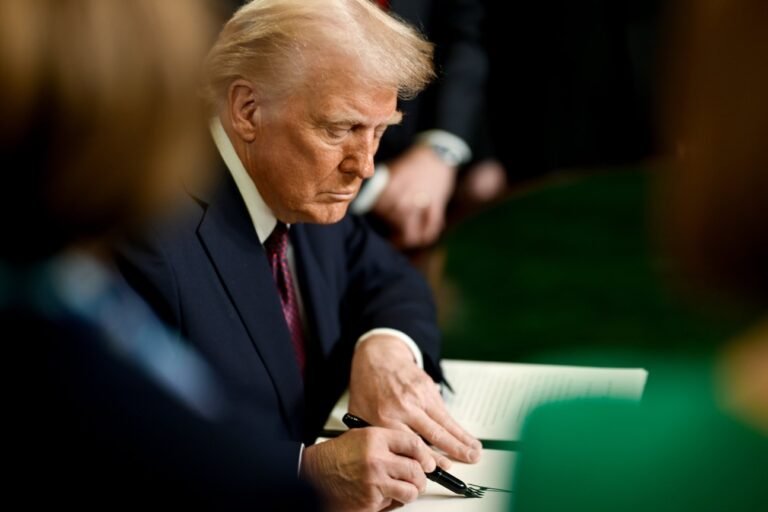Trump Threatens Secondary Sanctions on Russian Oil Imports: Implications for Global Energy Markets
US president Donald Trump on Monday announced a sweeping threat to impose secondary sanctions on nations importing Russian exports — a move that could shake up global energy markets and disrupt tanker trades from the Black Sea to the Indian Ocean.
Sitting beside NATO secretary-general Mark Rutte in the Oval Office, Trump warned that unless Russia agrees to a peace deal within 50 days, by September 3, his administration would introduce a 100% tariff on Russian goods and apply secondary sanctions on buyers of Russian oil.
Secondary sanctions are penalties applied not just to Russian entities but to companies in other countries doing business with them. If enforced, they could force major Russian crude buyers like China, India, and Turkey to choose between continued access to Russian energy or access to Western financial systems and markets.
Such a move would also have seismic implications for the global tanker trade. Russian crude exports have been a key driver of demand for the so-called shadow fleet of tankers operating outside mainstream Western financial and insurance systems. Many of these vessels are older ships flagged under jurisdictions with weak regulatory oversight. Their operations have expanded rapidly since the European Union ban on seaborne Russian oil imports in December 2022 and the accompanying G7 price cap.
Shipping analysts at SEB, a Swedish investment bank, said in a note to clients today, Trump’s new policy would likely make oil and gas buyers more hesitant to purchase fuel from Russia.
India and China remain the main buyers of Russian crude, accounting for 33% and 21% of imports year-to-date per AXS Marine data, respectively. On clean products, Turkey and Brazil have been the main buyers, accounting for 26% and 14% year-to-date, respectively. On LNG, the EU remains the main buyer, with Japan taking the largest share of Asian countries.
Trump’s ultimatum comes amid increasing scrutiny of the opaque web of shell companies and alternative payment systems that facilitate Russian crude trades. Enforcement of secondary sanctions could prompt banks, insurers, and service providers to de-risk from any transaction with even indirect ties to Russian exports, further tightening the compliance screws on the shadow fleet.
Still, Trump’s pattern of setting hard deadlines and extending them leaves open the possibility of delays or renegotiations. Analysts noted that the real impact would depend not just on policy adoption but also on the vigour of enforcement.
Meanwhile, the EU is finalising its 15th sanctions package against Russia, with a sharp focus on disrupting the Kremlin’s wartime revenues and curbing circumvention via third countries. Draft measures are expected to target the shadow fleet of tankers used to transport Russian oil outside the G7 price cap mechanism. Officials say the EU will seek to blacklist vessels suspected of engaging in illicit ship-to-ship transfers, flag-hopping, or falsifying AIS tracking to hide their movements. The new sanctions would, among other measures, cap the price of Russian energy exports at 15% below market value.
In related shadow fleet news, Malaysia has said it will implement new regulations by the end of July aimed at tightening enforcement against illegal ship-to-ship (STS) oil transfers in its territorial waters. Under the new regulations, vessels caught conducting unauthorised oil transfers will face immediate detention. Malaysia has been one of the main areas where shadow tankers transfer sanctioned oil to then take to China.

